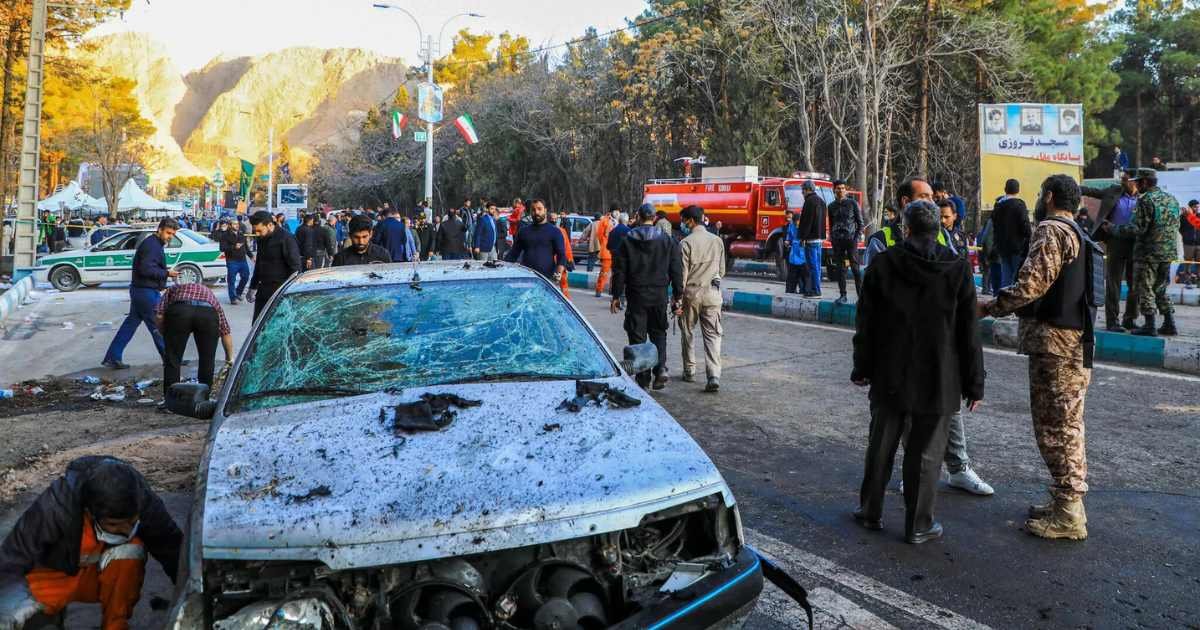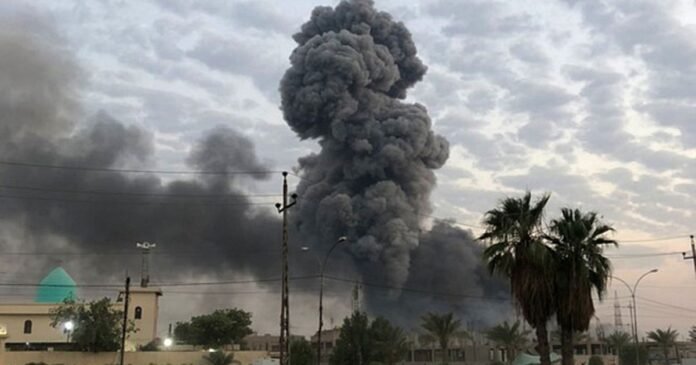In a tragic and unsettling development, the Islamic State has claimed responsibility for the bombing attack in Kerman, Iran, claiming the lives of more than 100 individuals. The terrorist outfit claimed responsibility via a post on the extremist group’s official Telegram account, characterizing the attack as a “dual martyrdom operation.” The detailed account outlined the orchestrated actions of two militants, Omar al-Mowahid and Sayefulla al-Mujahid, who approached a commemoration ceremony at the tomb of Maj. Gen. Qassim Suleimani.

The ceremony held particular significance as it honored the memory of the widely revered and simultaneously feared Iranian military and security leader, General Suleimani, who met his demise four years prior in an American drone attack. The attackers detonated explosive belts near the grave of the late general, describing it as an act executed “near the grave of the hypocrite leader,” in reference to General Suleimani.
This assertion by the Islamic State aligned with parallel American intelligence assessments, which suggested that the attack was likely orchestrated by the extremist group. Notably, four American officials and regional military authorities concurred with this evaluation. Initial reactions from some Iranian leaders had initially pointed fingers at Israel, creating apprehensions that the conflict in Gaza, where Israel was engaged with Hamas, a Palestinian ally of Iran, might escalate into a broader regional confrontation.
However, Western officials cast doubt on this theory, emphasizing that Israel’s past covert operations in Iran had typically been targeted endeavors against specific individuals, Iranian scientists, officials, or strikes aimed at dismantling nuclear or weapons facilities. The Islamic State’s claim further contradicted initial Iranian reports that the bombs were strategically placed in bags and remotely detonated along the road leading to the cemetery in Kerman, where thousands participated in the commemorative event.
This bombing incident in Iran has brought forth a distressing resurgence for the Islamic State, a group significantly weakened by years of relentless attacks from an American-led coalition in the region. American officials have suggested that the Islamic State’s primary intent might not be to frame Israel for the bombings or incite a broader conflict but rather to seize an opportunity to strike against a long-standing adversary. The animosity between the Islamic State, a Sunni Islamist group, and Iran, with its Shiite Islamic government leading, funding, and arming a coalition of Shiite groups across the Middle East, has deep historical roots.
In response to this horrific event, Iran declared a national day of mourning to pay tribute to the victims of the twin explosions. The timing of the incident adds another layer of symbolism, occurring on the fourth anniversary of General Suleimani’s death. Despite conflicting reports on the death toll, initially cited as 103 and later revised to 84, the impact of the attack extends beyond the loss of lives, resonating profoundly due to its symbolic significance and the tense geopolitical context in the Middle East.
